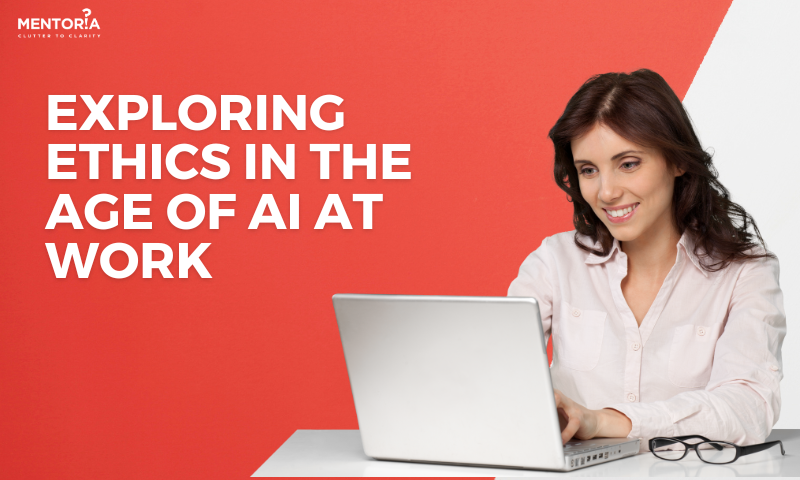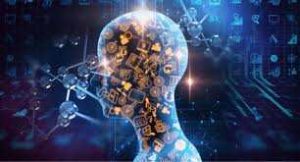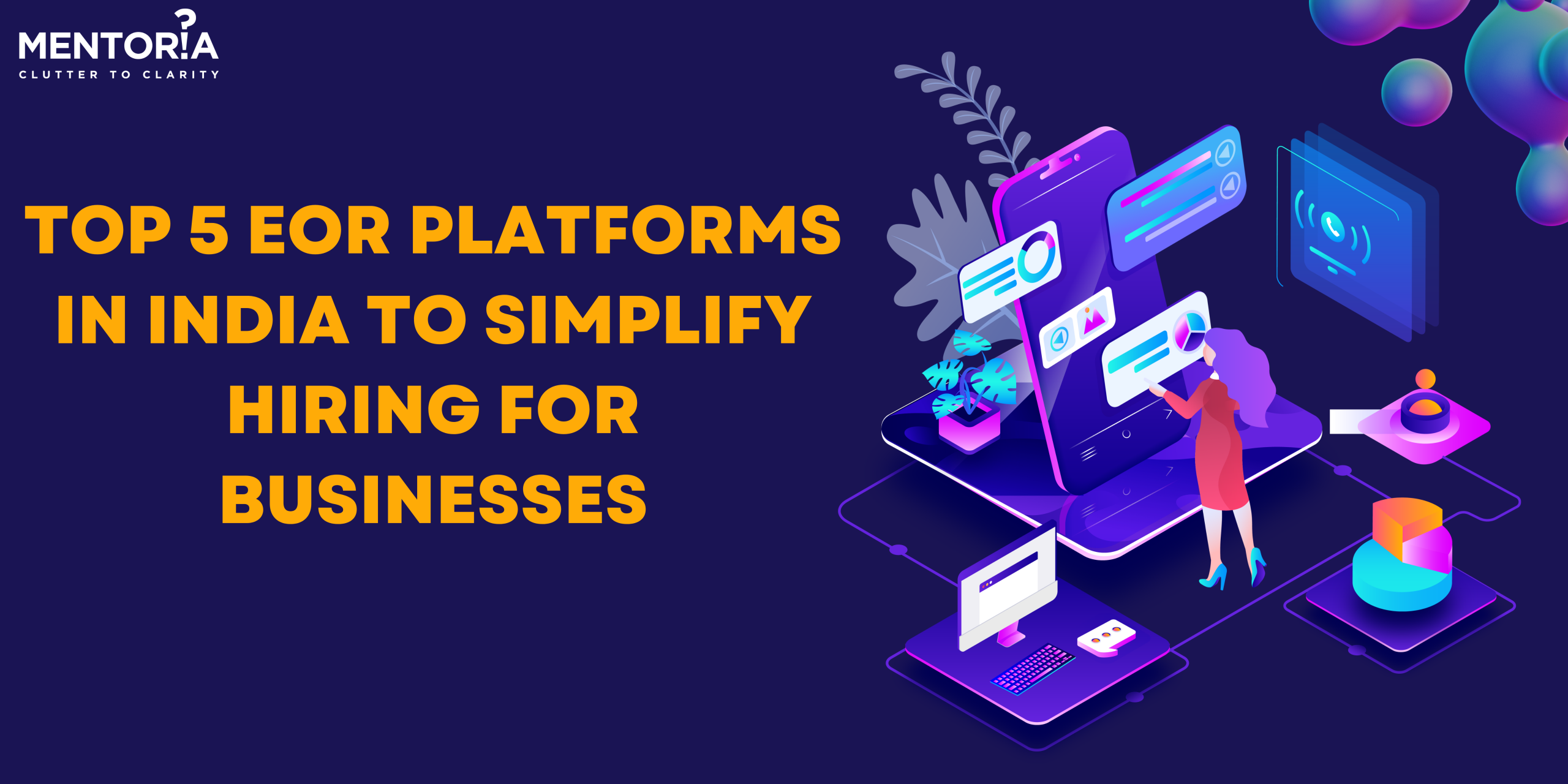Exploring Ethics In The Age of AI At Work

In the not-so-distant past, the idea of artificial intelligence (AI) permeating our workplaces seemed like science fiction’s fanciful dream. Fast forward to today, and AI has not only infiltrated our professional spaces but also become an integral part of decision-making processes. While the prospect of machines making our lives easier is undeniably enticing, it raises a myriad of ethical conundrums that demand our immediate attention. As AI algorithms increasingly influence hiring, employee monitoring, and performance evaluations, we find ourselves at a crossroads of technological advancement and moral responsibility.
AI’s Impact In The Workplace
Understanding AI In The Workplace
AI has swiftly transformed from a futuristic concept to a tangible reality in today’s workplaces. Its presence has become ubiquitous, with AI-powered systems streamlining tasks, assisting customer support, and optimising decision-making processes. According to Gartner’s research, a remarkable 85% of businesses have already adopted AI in some form in 2021. This rapid integration of AI brings both opportunities and ethical considerations that demand careful navigation.
The Power Of Data
Data fuels the algorithms that power AI, making it the backbone of its functionality. As workplaces collect vast amounts of data, concerns about data privacy and security surge. Recent studies conducted by Accenture indicate that 60% of employees worry about the potential misuse of their data in AI applications. Safeguarding employee data becomes paramount to maintain trust and uphold ethical standards. Organisations must establish robust data protection protocols and adhere to stringent data privacy regulations to ensure that data is used responsibly and ethically in AI applications.
Transparency And Explainability
AI algorithms often operate as black boxes, meaning they function without providing clear explanations for their decisions. This opacity raises ethical concerns, particularly in sensitive situations like hiring or performance evaluations. According to Deloitte, 62% of executives believe that having transparent AI systems is crucial. By creating AI systems that are explainable and transparent, organisations can foster employee confidence and trust in the decision-making process. This transparency also enables employees to understand how AI impacts their work and contributes to a positive organisational culture.
Addressing Bias And Fairness
AI systems are only as unbiased as the data on which they are trained. Inaccurate or biassed data can lead to AI-generated outcomes that perpetuate unfairness and discrimination. Recent examples in AI-powered recruitment systems have shown instances of gender and racial bias, with Amazon’s AI recruitment tool being scrapped in 2018 after it favoured male candidates. Addressing biases in AI algorithms becomes a crucial ethical responsibility. Organisations must actively invest in data diversity and inclusivity to ensure that AI systems are trained on unbiased data. By promoting fairness and inclusivity in AI design and deployment, organisations can reduce the risk of perpetuating biases in workplace decisions.
Maintaining Human-Centred AI
As AI automates repetitive tasks, there is a growing concern among employees about job displacement. Embracing a human-centred approach to AI becomes essential to alleviate these fears. Organisations should focus on upskilling and reskilling their workforce, empowering employees to work alongside AI. Rather than replacing humans, AI should augment human capabilities, freeing up employees to focus on higher-level, creative, and strategic tasks that AI cannot replicate. By fostering a human-AI collaboration, organisations can build a harmonious workforce that thrives in the age of AI.
Preserving Human Creativity
Creativity is a uniquely human trait that AI struggles to fully replicate. Nurturing human creativity becomes vital to ensure that AI does not overshadow the unique abilities that set humans apart. Encouraging a culture of innovation and creativity allows employees to leverage their creative potential, solving complex problems and driving innovation within organisations. By valuing and preserving human creativity, organisations can harness the full potential of both humans and AI, creating a harmonious and innovative work environment.
Navigating Ethical Dilemmas
The ethical considerations surrounding AI are complex and multifaceted. Establishing an ethical framework for AI requires thoughtful evaluation of its broader impact. Organisations can create AI ethics committees of diverse perspectives to analyse the ethical implications of AI applications. These committees can evaluate AI systems to ensure ethical standards are upheld and guide decision-making processes. By navigating ethical dilemmas responsibly, organisations can instil a sense of trust and confidence in their AI systems, ensuring that AI aligns with their ethical values and organisational culture.
Promoting Open Dialogue
Encouraging open communication and inclusivity is essential in fostering an environment where employees can express concerns about AI ethics freely. A study conducted by Harvard Business Review found that 78% of employees believe organisations should consult them on AI ethics. By soliciting employee input and actively involving them in AI decision-making processes, organisations demonstrate their commitment to ethical practices. Employees who feel heard and valued in discussions about AI ethics are more likely to embrace AI initiatives and feel confident in its implementation.
Collaboration With AI
Instead of fearing AI, organisations should embrace collaboration with these intelligent tools. AI’s data-driven insights can augment human decision-making, enhancing our ability to address complex challenges. A survey conducted by PwC indicates that 72% of business executives believe AI will offer a competitive advantage. By embracing collaboration, organisations can unlock AI’s full potential to enhance productivity, efficiency, and innovation. Rather than perceiving AI as a competitor, employees can view it as a valuable partner in driving success and growth.
Embracing Responsible AI
Responsible AI refers to the ethical use of AI to drive positive outcomes while minimising harm. Organisations must adopt responsible AI principles and conduct regular ethical audits of their AI systems. Being proactive in identifying potential risks and mitigating them ensures that AI remains a force for good in the workplace. Responsible AI practices involve constant evaluation, transparency, and ongoing adjustments to ensure that AI aligns with ethical values and respects the interests of all stakeholders.
How Mentoria Can Help
As the landscape of AI in the workplace evolves, navigating its ethical complexities can be challenging. At Mentoria, we are committed to helping individuals and organisations understand the ethical implications of AI adoption and implementation. Our team of expert mentors can provide insights into responsible AI practices, ensuring that organisations prioritise ethical considerations while embracing the potential of AI-driven solutions. From ethical decision-making frameworks to fostering a culture of inclusivity, Mentoria is here to guide organisations towards ethical AI practices that align with their values and goals. So, if you’re looking to explore the ethical dimensions of AI in the workplace, let Mentoria be your trusted partner in this journey of responsible innovation.









